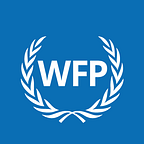Review of WFP’s impact evaluation strategy shows demand for more impact evaluations
WFP recently completed an independent review of the WFP Impact Evaluation Strategy. Review manager, Simone Lombardini, answered a few questions about the significance of the Review.
Why was the Review undertaken?
The purpose of the review is to provide an independent assessment of WFP’s Impact Evaluation Strategy to ensure that it is still fit for achieving its vision. It also assessed WFP’s progress towards developing the organizational capacity to deliver rigorous and adaptive impact evaluations that are both aligned with global evidence needs, and useful for operational learning.
The Review covers the first two years of the strategy, which were a pilot phase that deliberately intended to test the level of demand for impact evaluations and develop approaches for supporting and delivering impact evaluation across WFP. The Review assesses both the progress towards objectives of the strategy and to what extent WFP has established the structures and capacity to deliver.
When did the Review take place?
The Review started in April 2021, and it was conducted by a team of expert evaluators from IOD PARC. The process included a self-assessment with inputs from OEV’s MGM, the Impact Evaluation Team and Regional Evaluation Officers, followed by a desk review and electronic survey. Most of the data was gathered from an intensive process of 40 in-depth interviews with key informants from internal and external senior stakeholders. In October, a three-day online workshop was held to discuss some of the emerging findings, which were then consolidated into a report completed and approved in November 2021.
What has been the outcome of the Review?
Two years into the WFP Impact Evaluation Strategy, the Review found that it is proving resilient, and there is considerable positive feedback and evidence of progress. Most of the respondents interviewed regard this as an important and timely initiative by WFP. What is also clear is that there is substantial demand for more impact evaluations in WFP. Unfortunately, due to COVID, it is still too early to see completed impact evaluations, but progress has been achieved in most of the key workstreams.
The Review highlighted some areas for consideration moving forward. This includes further refining a hybrid model that combines external expertise with in-house capacity and accelerates the capacity building work in WFP to respond to the latent and actual demand for more impact evaluations. The Review also identified the need to more explicitly build links to researchers in developing countries and the global South as well as broaden the methods to help answer the ‘why’ question and provide greater contextual knowledge and understanding of programme implementation.
Finally, the Review identified five recommendations. First, consider expanding impact evaluation specialists beyond HQ, for example, in the regional evaluation units. Second, develop a clear plan for broadening its partnerships for the delivery of impact evaluations. Third, consider how to apply the concept of impact evaluations in a more flexible way, using a greater range of methods. Fourth, alongside broadening partnerships for delivery, proactively build strategic partnerships to spearhead more systematic engagement on impact evaluations. Finally, prioritise communications, including the work on evidence use.
What are the next steps?
OEV’s Impact Evaluation Team is currently engaging in a series of consultations with key stakeholders that will help articulate the response to the Review and, most importantly, define the actions to continue implementing and delivering on the strategy.
